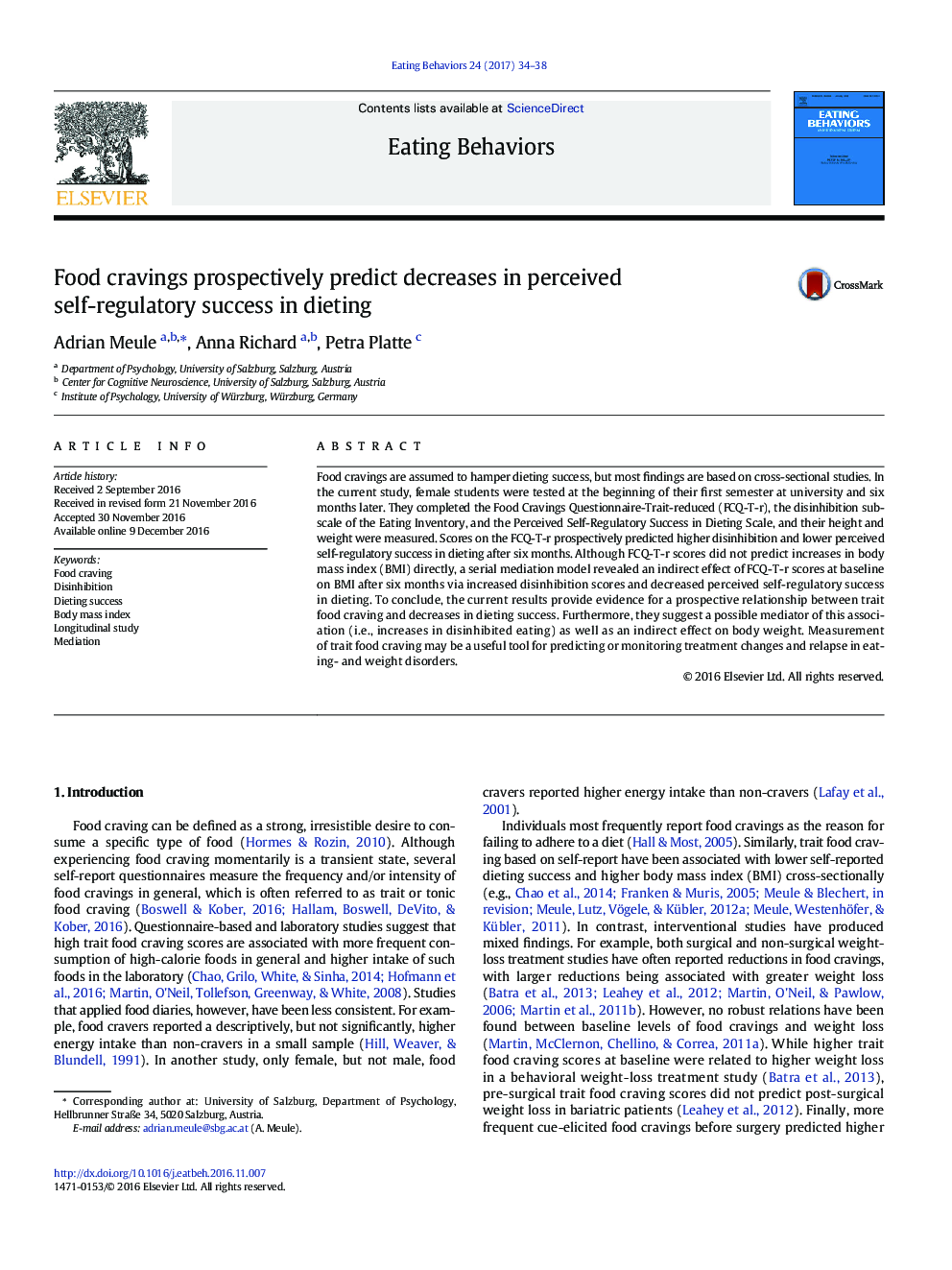| Article ID | Journal | Published Year | Pages | File Type |
|---|---|---|---|---|
| 5038752 | Eating Behaviors | 2017 | 5 Pages |
â¢Female students were tested at the start of the first semester and six months later.â¢Food cravings, disinhibited eating, and perceived dieting success were assessed.â¢Food cravings at baseline prospectively predicted decreases in dieting success.â¢Food cravings indirectly predicted increases in BMI via eating-related measures.
Food cravings are assumed to hamper dieting success, but most findings are based on cross-sectional studies. In the current study, female students were tested at the beginning of their first semester at university and six months later. They completed the Food Cravings Questionnaire-Trait-reduced (FCQ-T-r), the disinhibition subscale of the Eating Inventory, and the Perceived Self-Regulatory Success in Dieting Scale, and their height and weight were measured. Scores on the FCQ-T-r prospectively predicted higher disinhibition and lower perceived self-regulatory success in dieting after six months. Although FCQ-T-r scores did not predict increases in body mass index (BMI) directly, a serial mediation model revealed an indirect effect of FCQ-T-r scores at baseline on BMI after six months via increased disinhibition scores and decreased perceived self-regulatory success in dieting. To conclude, the current results provide evidence for a prospective relationship between trait food craving and decreases in dieting success. Furthermore, they suggest a possible mediator of this association (i.e., increases in disinhibited eating) as well as an indirect effect on body weight. Measurement of trait food craving may be a useful tool for predicting or monitoring treatment changes and relapse in eating- and weight disorders.
